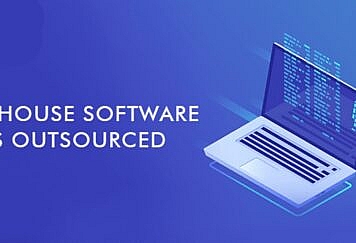Have you ever wondered how Facebook makes friend recommendations and suggests people you might actually know? Or how do hotel ads start popping up after a Google search for holiday hotspots in Paris? It’s all thanks to their constant data tracking practices.
Tech companies like Google, Apple, and Facebook track users around the clock. Having someone watching over your shoulder 24/7 is a frightening prospect for anyone. And the potential risks of accumulating large volumes of personal data are simply immeasurable. A data breach at these tech companies could expose you to various threats, from identity theft to financial fraud. And when your data is traded, sold, and shared multiple times, you’re left with no control over how it’s used.
So, how can you keep your private information away from Google, Apple, and Facebook tracking tools? In this article, we’ll guide you through specific measures to avoid their intrusive practices and keep your data safe and secure.
What Information Is At Risk?
These tech giants track an alarming amount of personal data. And they’ll collect just about anything that could help them get to know you better.
Google, for instance, tracks all your search queries. But it doesn’t stop there. It’s collecting even more personal data through its various other services. YouTube, for example, tracks your video viewing habits and monitors what you upload, like, or post a comment on.
Meanwhile, Google Maps is quietly keeping an eye on your whereabouts. Do you have location tracking on or use Maps regularly to find your way around the city? Then it likely knows where you live, travel, and work. And then there’s Gmail: it has access to your contact lists and other personal data in your profile settings.
Similarly, Facebook can track all your social media activities, from the posts you share to the friends in your network. Apple is another heavyweight when it comes to data tracking. Apple devices know which apps you’re interacting with and could even track your data together with them. They might also have access to the biometric details you use as log-in credentials.
And on top of all the direct data collection, these companies track your online activities through third parties, too. As a result, they know what you’re up to even when you’ve logged off from their platforms.
How Can You Keep Your Personal Data Safe?
Protecting your data from tech firms like Google, Apple, and Facebook is not always easy. The standard data security measures often don’t apply to them. For example, passwords can save you from a cybercriminal, but not from Google, Apple, or Facebook.
To keep your data from their inquisitive grip, you need a separate set of steps. Here’s what you should do.
1. Go to Settings
Many users don’t check their account settings unless they need to change their passwords. But Settings features can offer various tools to keep your data safe. For example, it might allow you to opt-out of data tracking and prevent your profile from appearing in Google search results.
Of course, the privacy options available will be different for each company. Google, for example, lets you turn off location and YouTube histories. And Facebook provides an off-Facebook activity tracker to view 180-days’ worth of data it’s been collecting about you.
2. Avoid Linking Accounts
Some sites offer the option to log in using your Google or Facebook account. It helps eliminate the hassle of maintaining multiple account credentials. So, with one username and password, you get to access several accounts. This facility provides incredible ease. But it also exposes you to even more data tracking by allowing companies like Google to monitor your activities outside their platforms.
To tackle this, set up separate log-in credentials instead of linking accounts with a single ID. If remembering passwords is a challenge, opt for a password manager.
3. Avoid Cookies
Cookies help businesses track user activities. For instance, Google could use cookies to track what type of videos you’re searching for and watching on its video platform, YouTube. They can use this information to suggest more videos related to your interests. Cookies can help these businesses personalize their user experience on their platforms, show more relevant advertisements, and improve their services.
But all this information could severely compromise your privacy and safety, too, when misused, shared, or sold. So, avoid cookies as much as possible and ensure you delete them regularly from your browser.
4. Check App Permissions
Account privacy settings alone will not help keep your data safe. When you’re downloading apps onto your smart devices, you’re providing a separate set of permissions on how businesses can access your data.
Take, for example, Facebook. By downloading its app, you’re providing it consent to access your calendar and location, download files without your permission, check network connections, retrieve running apps, read your contacts, phone’s identity, and content in your shared storage, and search for accounts in your device. That’s a staggering amount of data for one app.
To avoid all these data intrusions, go into your device settings and check which app permissions you’ve granted. Revoke what you can. And as for the rest, you might want to uninstall them altogether.
Of course, all this data tracking is not without benefits for the user. For instance, companies like Google may track your IP address to flag any unusual account activity. This type of monitoring process could be invaluable to prevent hacking attacks and unauthorized access. Similarly, filtering content that’s relevant to your interests and making recommendations could have its advantages, too.
Having said that, balancing risks with benefits is critical when you stand to lose your privacy and safety by giving access to your personal information. So, taking effective measures to keep your data away from Google, Facebook, and Apple will certainly not go to waste.
Follow TechStrange for more Technology, Business, and Digital Marketing News.





